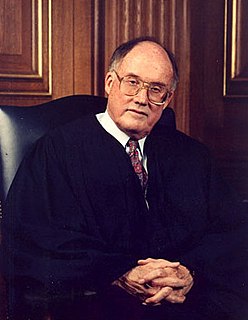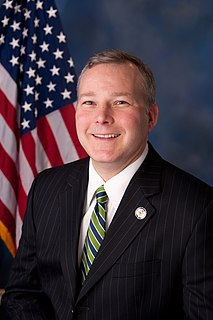A Quote by David Limbaugh
Conservatives who believe that the Constitution should be interpreted according to the plain meaning of its language and the original intent of the Framers have long been troubled by the court's decisions expanding the commerce clause to authorize Congress to regulate the most local of matters within a state's borders.
Related Quotes
It is impossible to build sound constitutional doctrine upon a mistaken understanding of Constitutional history... The establishment clause has been expressly freighted with Jefferson's misleading metaphor for nearly forty years... There is simply no historical foundation for the proposition that the framers intended to build a wall of separation... The recent court decisions are in no way based on either the language or intent of the framers.
In explaining the Constitution, James Madison, the acknowledged father of the Constitution, wrote in Federalist Paper 45: 'The powers delegated by the proposed Constitution to the Federal government are few and defined. Those which are to remain in the State governments are numerous and indefinite. The former will be exercised principally on external objects, as war, peach, negotiation, and foreign commerce.' Has the Constitution been amended to permit Congress to tax, spend and regulate as it pleases or have Americans said, 'To hell with the Constitution'?
It [the Constitution] didn't break free from the essential constraints that were placed by the founding fathers in the Constitution, at least as it's been interpreted, and the Warren court interpreted it in the same way that generally the Constitution is a charter of negative liberties. It says what the states can't do to you, it says what the federal government can't do to you, but it doesn't say what the federal government or the state government must do on your behalf. And that hasn't shifted.
I believe that the power to declare war is most important in limiting the powers of the national government in regard to the rights of its citizens, but that it does not require Congress to give its approval before the president uses force abroad. I do not believe that the framers of the Constitution understood the power to declare to mean "authorize" or "commence" war. That does not mean that the separation of powers or checks and balances will not work.
For the power given to Congress by the Constitution does not extend to the internal regulation of the commerce of a State (that is to say, of the commerce between citizen and citizen,) which remain exclusively with its own legislature; but to its external commerce only, that is to say, its commerce with another State, or with foreign nations, or with the Indian tribes.
I have very deep concern about the legacy of the Rehnquist court and its efforts to restrict congressional authority to enact legislation by adopting a very narrow view of several provisions of the Constitution, including the commerce clause and the 14th Amendment. This trend, I believe, if continued, would restrict and could even prevent the Congress from addressing major environmental and social issues of the future.
More importantly, the Court forgets that ours is a government of laws and not of men. That means we are governed by the terms of our laws, not by the unenacted will of our lawmakers. 'If Congress enacted into law something different from what it intended, then it should amend the statute to conform to its intent.' In the meantime, this Court 'has no roving license ... to disregard clear language simply on the view that ... Congress 'must have intended' something broader.



































